Here bounds the gaudy, gilded chair,
Bedecked with fringe and tassels gay;
The melancholy mourner there
Pursues her sad and painful way.
Here, guarded by a motley train,
The pampered Countess glares along;
There, wrung by poverty and pain,
Pale Misery mingles with the throng.
Here, as the blazoned chariot rolls,
And prancing horses scare the crowd,
Great names, adorning little souls,
Announce the empty, vain and proud.
Here four tall lackeys slow precede
A painted dame in rich array;
There, the sad, shivering child of need
Steals barefoot o’er the flinty way.
‘Room, room! stand back!’ they loudly cry,
The wretched poor are driven around;
On every side they scattered fly,
And shrink before the threatening sound.
Here, amidst jewels, feathers, flowers,
The senseless Duchess sits demure,
Heedless of all the anxious hours
The sons of modest worth endure.
All silvered and embroidered o’er,
She neither knows nor pities pain;
The beggar freezing at her door
She overlooks with nice disdain.
The wretch whom poverty subdues
Scarce dares to raise his tearful eye;
Or if by chance the throng he views,
His loudest murmur is a sigh!
The poor wan mother, at whose breast
The pining infant craves relief,
In one thin tattered garment dressed,
Creeps forth to pour the plaint of grief.
But ah! how little heeded here
The faltering tongue reveals its woe;
For high-born fools, with frown austere,
Condemn the pangs they never know.
‘Take physic, Pomp!’ let Reason say:
‘What can avail thy trappings rare?
The tomb shall close thy glittering day,
The beggar prove thy equal there!’
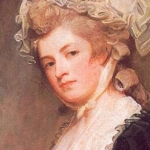
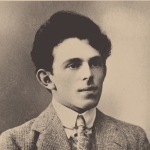






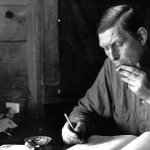




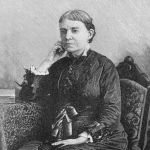



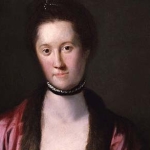


Comment form: